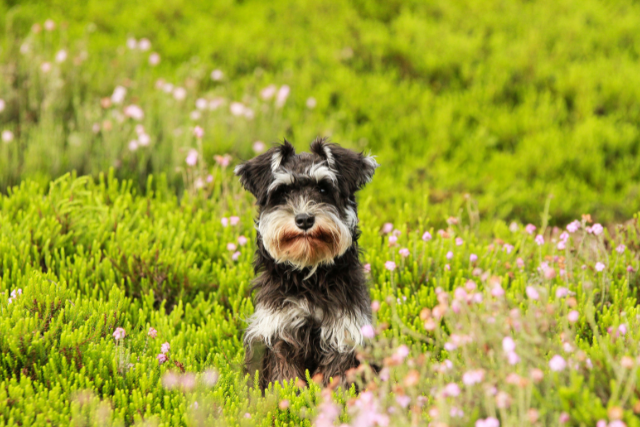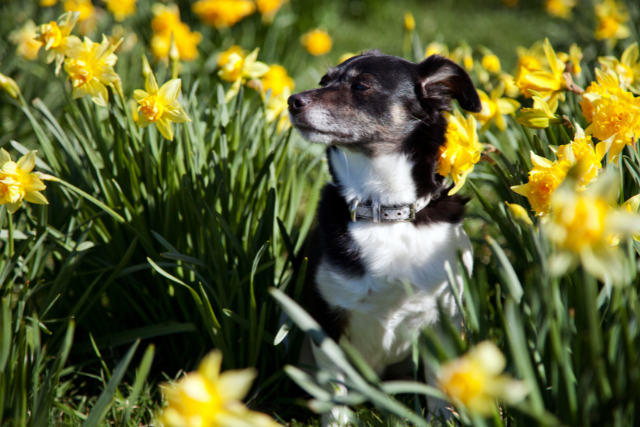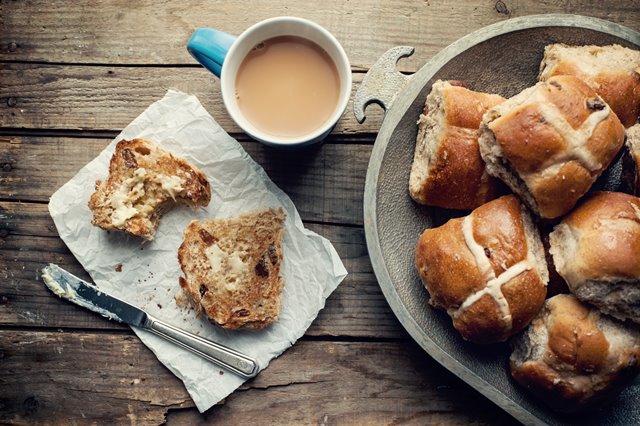Keeping your pets happy and healthy this Easter

Spring is in the air and the shops are full of chocolate goodies which can only mean one thing... Easter is fast approaching! This time of year often marks the start of outdoor fun and games for many families but this can bring with it some dangers for our four-legged family members.
To make sure this Easter is safe and enjoyable for you and your pets just follow our top tips:
Easter Eggs

It wouldn’t be Easter without having a houseful of chocolate eggs and other sweet treats but this can be a minefield for any canine parent as chocolate is extremely toxic to dogs, but also extremely enticing! Many of our furry-four-legged friends love the taste of chocolate and unfortunately have no concept of just how sick the smallest amount can make them. One of the most common emergency presentations a veterinary surgeon will deal with at this time of year is that of a beloved family pet who has managed to find their way into the chocolate stash. The following tips will help keep your canine family members safe this Easter:
- Children – ensure that all children in the family are fully aware of how dangerous it can be for dogs to have chocolate; ensure they know to be careful about dropping chocolate on the floor or leaving any lying around where dogs may be able to reach.
- Storage – ensure that all chocolate is securely stored in a place that dogs won’t be able to get into; many dogs are not put off by a closed box and will often eat the packaging (foil included!) as well as the chocolate.
- Easter egg hunts – many families take part in Easter egg hunts around the garden but your dog has a much better nose than you and will sniff out small chocolate eggs far faster than any child (or chocolate-loving adult!). Instead of hiding chocolate eggs, consider using brightly decorated stones which your children can ‘trade in’ for chocolate after they find them.
Spring Bulb Plants

Daffodils, tulips and other spring bulb plants are common sights in many gardens and homes at this time of year but these plants can make our four-legged family members very sick if ingested (even if they just drink the water from a vase or pot base containing certain bulb plants). To avoid any unwanted trips to the vet:
- Make sure that any bulb plants indoors are kept in places that no pets (dogs or cats) can reach.
- If you plant spring bulb plants in your garden ensure that they are in areas not easily accessible to dogs, this is especially important if you have any furry-family members who like to dig (as the bulbs are often the most toxic part of the plant).
Hot Cross Buns

Hot cross buns are another yummy Easter-time treat, but did you know that these sweet rolls of tastiness are also dangerous for your dog? That’s because most hot cross buns contain raisins and/or sultanas which, even in small amounts, can be potentially deadly to our canine companions. Scientists are unsure of the exact mechanism that makes sultanas, raisins and grapes so toxic to dogs (and not all dogs are equally affected) but in animals that are sensitive to these ingredients, just a few small raisins can be enough to cause fatal kidney failure. As there is no way to tell which dogs will be affected it is important to ensure that no dogs are fed any foods containing raisins, sultanas or grapes. If you suspect your dog has ingested any of the above or any other potentially toxic substance then you should always call your vet immediately for advice.
We hope you and your pets enjoy a happy healthy Easter!
If your pet suffers from Seasonal Allergies, read our guide on how to take care of them here
News

